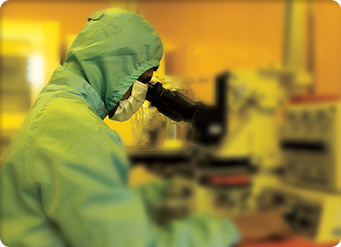
-
About the College
About the College
-
Departments
Departments
-
Key Business & Appendages
Key Business & Appendages
-
Student Support
Student Support
- News
Departments
INTRODUCTION
- Home
- Departments
- Departments
- Department of Chemical Engineering and Applied Chemistry
- Department of Architecture
- Department of Architectural Engineering
- Department of Civil Engineering
- Department of Environmental Engineering
- School of Mechanical Engineering
- Department of Mechatronics Engineering
- Department of Naval Architecture and Ocean Engineering
- Department of Aerospace Engineering
- Department of Materials Science and Engineering
- Department of Organic Materials Engineering
- Department of Chemical Engineering and Applied Chemistry
- Department of Electrical Engineering
- Department of Electronics Engineering
- Department of Radio & Information Communications Engineering
- The Division of Computer Convergence
- Department of Smart City Architectural Engineering
- Department of Autonomous Vehicle System Engineering
- Department of Artificial Intelligence
- Department of Energy Engineering
- School of information Communications Covergence Engineering

Department of Chemical Engineering and Applied Chemistry
Department of Chemical Engineering and Applied Chemistry
Introduction
The department of Chemical Engineering and Applied Chemistry is established by merging two departments: chemical engineering and fine chemical engineering & applied chemistry. In this newly established department, 17 full-time Professors, approximately 400 undergraduate students, and 170 graduate students including the master and doctoral candidates.
Our undergraduate curriculum offers the outstanding program to introduce the fundamental knowledge in organic chemistry, inorganic chemistry, physical chemistry, biochemistry, electrochemistry, thermodynamics, transport phenomena, reaction kinetics and process control engineering. Based on these basic knowledges, the students further can develope the expertise in the applied chemical engineering: an operation of plants, a production of chemicals from oil refinery, manufacturing the high valuable products such as organic materials, fine ceramics, functional polymers, hybrid materials, a surface processing technology, a recycle technology, an energy and environmental technology and so on.
Additionally, the students can take the special program provided by Accreditation Board for Engineering Education of Korea (ABEEK), which might lead the students to become an excellent engineer who is highly customized in the industrial demand. The graduates will not only have a specialty in analytical analysis skills but also provide the innovative solutions to cope with the real complicated chemical world problems.
Faculty
| Name | Title | Major | Phone |
|---|---|---|---|
| Kim, Dong-Myung | Professor | Biotechnology (Synthetic Biology) | +82 42 821-5899 |
| Kim, Byeonggwan | Professor | Polymer and Organic Materials (organic electronic materials) | +82 42 821-6696 |
| Kim, Sungtak | Professor | Heterogeneous Catalysis and Reaction Engineering | +82 42 821-5686 |
| Kim, Young-Ho | Professor | Catalysis/Unit Process | +82 42 821-5898 |
| Roh, Kosan | Professor | Process Systems Engineering (Optimal Process Design and Operation) | +82 42 821-5684 |
| Ryu, Hoon-Hee | Professor | Energy Materials for Batteries | +82 42 821-6694 |
| Hae-Min Park | Professor | Biotechnology (Systems Bioengineering) | +82 42 821-5683 |
| Song Seulki | Professor | Chemical Engineering (Energy Materials and Devices) | +82 42 821-5688 |
| Song, Seung-Wan | Professor | Electrochemistry (Batteries) | +82 42 821-7008 |
| You, Jae Bem | Professor | Transport Phenomena (Separation Technology) | +82 42 821-5687 |
| Lee, Kyung Jin | Professor | Polymer and Organic Materials (organic/inorganic nanomaterials) | +82 42 821-7009 |
| Lee, Young-Seak | Professor | Carbon Industrial Chemistry | +82 42 821-7007 |
| Jaewon Lee | Professor | Energy and Soft Materials | +82 42 821-5685 |
| Lee, Chang-Soo | Professor | Biochemical Engineering | +82 42 821-5896 |
| Choi, Yoo Seong | Professor | Biomolecular engineering | +82 42 821-5682 |
| Choi, Ho-Suk | Professor | Energy & Environment (Energy Conversion Engineering) | +82 42 821-5689 |
| Han, Kyoo-Seung | Professor | Engineering of Energy Transformation and Storage | +82 42 821-5897 |
| Han, Myungwan | Professor | Process System (Process System Engineering) | +82 42 821-5690 |

Career Opportunities
After graduation, the undergraduate students can become an active engineer in the chemical and biological industries, a researcher in the research institutes, an officer in the governmental administrative offices. In addition, the students might have a profound understanding in a specific subject which could be relevant to the chemical engineering and applied chemistry. After completion of graduate courses, the students who might have either a master or a doctoral degree can work for the academic or the research institutes.